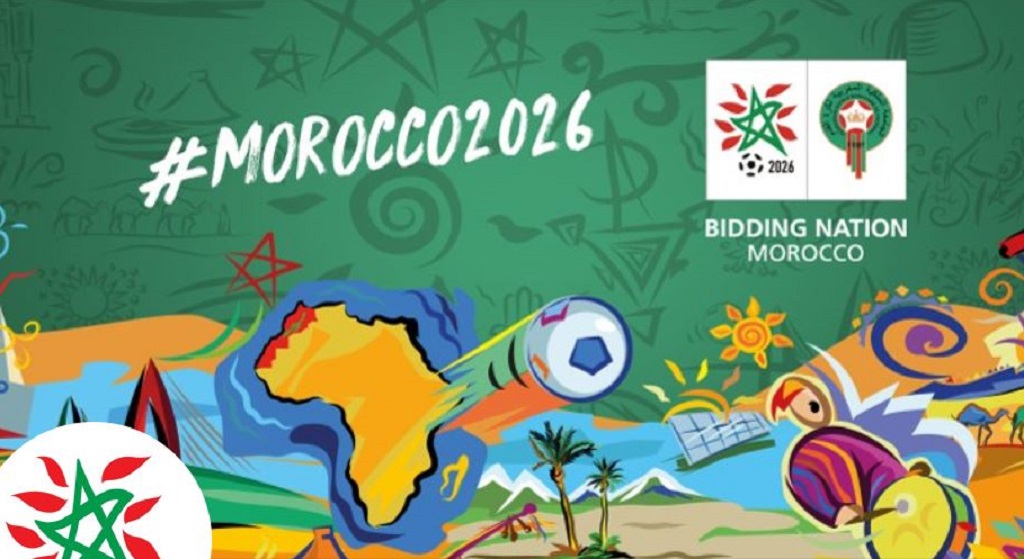By Andrew Warshaw
May 18 – Morocco’s attempt to wrest the 2026 World Cup away from the North American favourites reaches its most decisive point to date on May 29 when FIFA’s evaluation Task Force delivers its verdict on whether the north Africans have met the criteria and can be on the ballot paper in Moscow.
FIFA’s Congress meets two weeks later on June 13 and every Moroccan supporter is feeling the tension as the country waits to discover its fate in terms of being allowed to take on the heavyweight joint bid of the United States, Canada and Mexico.
“The Task Force charged by FIFA to evaluate both the North American and Moroccan 2026 FIFA World Cup bids will make its verdict on the eligibility of both files to progress to FIFA congress on May 29,” Morocco’s bid team confirmed.
Although the Task Force’s analysis will be studied by FIFA’s ruling Council on June 10, under the regulations whatever its technical experts recommend will have to be approved. It will then be up to FIFA’s 207 voting members to cast their votes – if one takes place at all.
FIFA president Gianni Infantino has been accused of trying to undermine Morocco’s campaign by instructing the Task Force to deliberately uncover some kind of incriminatory evidence that would exclude the Moroccans. Fingers were recently pointed towards certain Task Force members when FIFA secretary general Fatma Samoura was reported to the FIFA ethics committee over an alleged undeclared family link with former Senegal international El Hadji Diouf, her compatriot and a Morocco 2026 ambassador.
The claim proved to be totally groundless but no action has been taken against whoever made the tenuous connection amid Moroccan complaints that the Task Force was neither independent nor impartial.
In the latest row, FIFA has turned a blind eye to a request from Morocco that four countries governed by the US – American Samoa, Guam, Puerto Rico and the US Virgin Islands – be refused permission to take part in the ballot, a controversy that is now in serious danger of disrupting proceedings at the Congress.
The Moroccans also point to another inconsistency, claiming that at last week’s international sports journalists’ association AIPS in Brussels where both sides made presentations, United 2026 gave a far bigger figure in terms of projected ticket sakes than in their official bid book.
Meanwhile, aware that the likes of Nigeria and South Africa plan to break ranks and vote for United 2026, Confederation of African Football president Ahmad Ahmad is reported to be strongly mobilising any wavering African countries to stick with Morocco, urging them not to give in to Donald Trump’s perceived threat of repercussions if they don’t back United 2026.
Contact the writer of this story at moc.l1713610065labto1713610065ofdlr1713610065owedi1713610065sni@w1713610065ahsra1713610065w.wer1713610065dna1713610065

